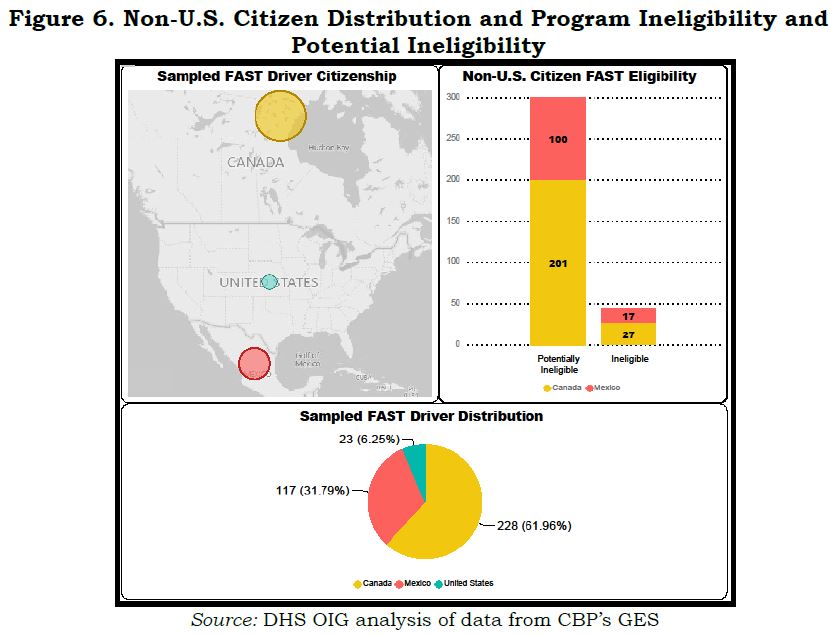Potentially thousands of high-risk truckers approved for expedited border crossings
U.S. Customs and Border Protection potentially increased border security risks by allowing nonqualified truckers into its FAST program, which grants low-risk drivers expedited access into the country.
A recent audit by the Department of Homeland Security’s Office of Inspector General discovered significant flaws with CBP’s Free and Secure Trade program. Also known as the FAST program, CBP expedites processing into the United States for low-risk truck drivers and carriers that qualify. However, the audit found potentially high-risk drivers fell through the cracks.
According to the audit, CBP approved 45 of 368 drivers who were active during fiscal year 2019 with potentially disqualifying records that may consider them high risk. The report accuses CBP of not accurately applying standards or resolving all disqualifying factors. Allegedly, this is the result of inadequate guidance and procedures.

Although 45 drivers make up only 12% of the drivers investigated for the audit, the situation gets worse. The report claims another 301 of the 368 drivers in the FAST program with potentially disqualifying records were approved without CBP fully assessing their risk. That accounts for 82% of drivers audited.
The logic behind the program was to free up CBP agents’ time to focus on high-risk drivers by spending less time dealing with known low-risk drivers.
However, the Office of Inspector General’s report suggests the agency is not assessing the program’s impact on border security. In other words, there is no way of knowing whether or not the program is even working. The report also says the program may be putting border security at higher risk.
“CBP’s reliance on FAST drivers may increase risk and compromise border security, as demonstrated by our audit results,” the report states. “Without an effective means to evaluate the program’s impact on border security, CBP may be exposing its land ports of entry to heightened threats.”
It is not clear what exactly disqualified the drivers. The government considers a lot of that information sensitive. Consequently, the audit is heavily redacted, including information detailing CBP’s failures.
Most of the drivers identified in the audit either had their FAST program membership revoked or eligibility issues adequately resolved. However, the 368 drivers in the audit represent just a fraction of the tens of thousands of drivers in the program.
In addition to updating manuals and procedures, the audit recommended that CBP complete a risk analysis of the FAST program. If CBP cannot mitigate risks to an acceptable level, the report wants it to revoke the status of non-U.S. drivers. CBP concurred with all recommendations.
CBP’s FAST program
The FAST program is part of CBP’s larger Trusted Traveler Programs, which enhances “legitimate trade and travel while maintaining the highest level of border security and integrity,” according to the audit.
The FAST program was established after 9/11 for known low-risk shipments. Quicker border crossings for those drivers allow further inquiry into high-risk or unknown drivers without affecting the flow of commerce.
Applicants must pay a $50 fee. CBP’s National Targeting Center then vets and assesses the applicant. Drivers that pass that process go on to an interview at a CBP Enrollment Center. Those officers are to resolve any issues identified by the National Targeting Center. After that, a driver receives approval and a FAST program card. That card is good for five years.
Drivers north and south of the border are eligible for the FAST program. In 2019, there were nearly 84,000 truckers enrolled in the FAST program. More than three-quarters of those truckers are FAST North drivers. Extrapolating from the 12% of audited drivers, more than 10,000 FAST drivers could be unqualified. LL









